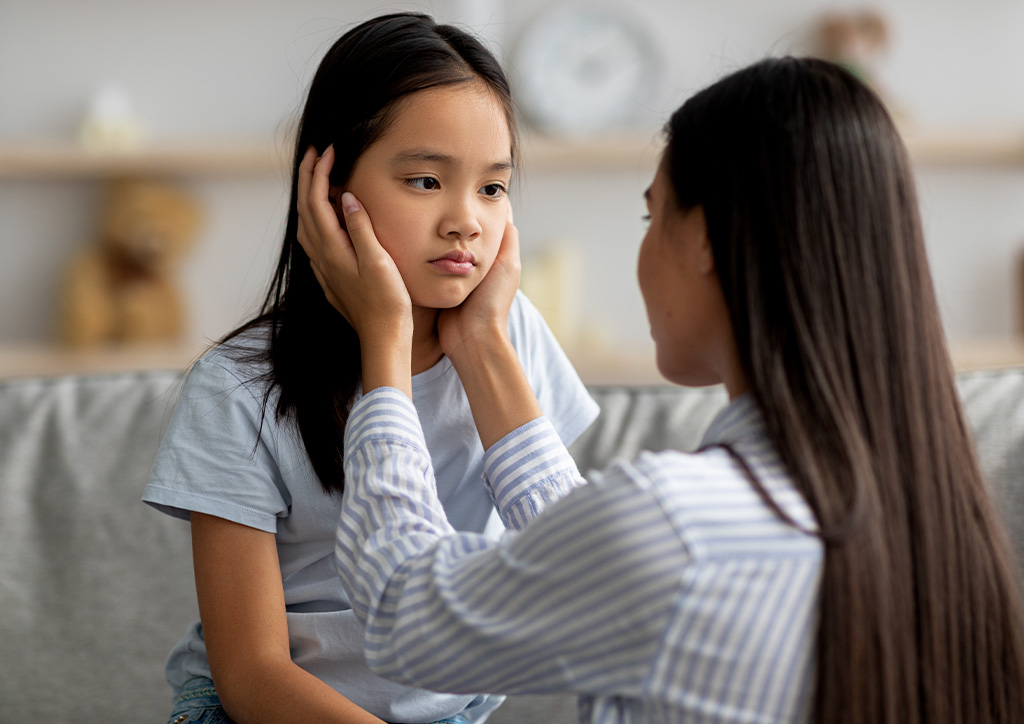Real Talk
Parents Might Be Understanding Tough Love the Wrong Way
What’s the real form of Tough Love and how have we misinterpreted it over the years?
As parents, our basic understanding of “tough love” is that we enforce strict rules and deliver harsh punishments to help our children grow. However, some parents began using “tough love” as an acceptable reason to force their kids into a toxic environment where they subconsciously begin to gaslight, resort to physical means as an alleged way to discipline, and threaten. But is that what tough love is?
Knowing what tough really is may help us understand why many of us think and complain that today’s parents are being “too soft” on their kids.

Why call it tough love?
Many of us understand love as a “soft and warm” feeling. We find it in the perfect cup of hot chocolate, a bouquet of our favorite flowers in our favorite color, or even a warm bowl of soup. These are all soothing in nature, which is why it’s hard for us to see love and kindness when we assert our boundaries, communicate our feelings, and voice our opinions. It’s not soft or warm in nature. Doing these things then makes us feel we are threatening the person. It hurts us but then, it slowly starts to make sense as to why we made that choice.
Is physical punishment a form of tough love?
Filipinos are quite passionate and with the mixed culture of the Spaniards, it’s no surprise that our expressions can be both verbal and physical. When emotions are intense, the filters between our brains and mouths disappear. We say a lot of hurtful things and when furious, our inhibitions go out the window, too. But that moment of frustration can put the love we feel for our kids on the back burner. If we examine the emotion closely then, we can see that it’s intense frustration that needs an outlet. Why else would we want to hit something?
Why do Filipino parents see physical punishment as a form of tough love?
A study done by Margaret Sanapo reveals that Filipino parents — especially those from rural areas — actually have a fine line that makes physical punishment different from abuse. One of her respondents explained that the fine line was the target or where the strike lands. Sanapo writes,
But they also agreed that physical punishment on children must have some limitations.
Sanapo, 2012
They all said that parents or adult members of the family must never hit the child on his head or
nape because these are vulnerable parts of the body. According to them, hitting the child on
vulnerable parts of the body is tantamount to child abuse. “Okay lang hanuton o hampasun mo
ang bata sa kamot o sa batiis niya pero nungka ka gid magpatupa sa ila ulo ukun tangkugu kay
child abuse na ina sya. Dayun basi mamung-an mo sila kag mapatay mo pa… ” (It’s okay to spank
or hit the child’s hands or legs but never hit their head or nape because that is already child abuse.
You might kill them in the process.)
Another thing she noticed is how these Filipino parents who admitted to physically punishing their child often quoted the bible verse: “Sparing the rod, spoiling the child.” She writes, “They all thought that this verse only showed that God allowed parents to beat their children in order to teach them a lesson. Therefore, although it pained them to see their child cry when they pinch or hit the latter, they felt that they have no choice since non-physical punishment such as reprimand, advice, withdrawal of what the child likes, and the like were not effective.”
Many of these parents saw that they had “no other choice” but to strike their children to teach them. But with science and knowledge now available, new parents and the younger generation are beginning to realize that in no way is hitting a child a good thing. Science has proven enough that violence towards children simply breeds more violence.
New parents and the younger generation are now calling out traditional parents for this misinterpretation.
A lot of parents now are complaining that kids are just hellbent on “blaming” them for every little bad thing. While it shouldn’t be for every little bad thing, it is somewhat true that our misinterpretation of “tough love” may have created a bad foundation for them to deal with the everyday problems in life. Tough love isn’t just in the form of physical punishment, though. It can also be in the form of controlling them, akin to helicopter parenting or being a stage mother.
But how do we teach them the harsh realities of life while making sure they feel safe with us?

Tough love also means encouraging debate.
The toughest part about tough love is actually more on how much mental gymnastics we are willing to put ourselves through to understand our kids. Trying to understand their perspective, checking our biases and theirs, and making sure we’re updated with the latest cultural developments — it’s a lot tougher than the usual Filipino-style discipline.
Many of us probably have realized by now that it’s a lot easier to let ourselves get swept up in the emotion and unleash the unholy trinity of traditional Filipino discipline: hitting, sermon, and the post-war cold shoulder. Sometimes, we even have a side-order of guilt-tripping and gaslighting to top it off. But this realization is also the reason why many of us get that negative feeling in our stomachs after. We know, deep down, our kids learned absolutely nothing from that.
Parenting is a lifelong journey of learning
The pressure of being responsible for other humans can be intimidating. It sometimes makes us question why we even thought having kids was a good idea. But being a parent, especially as a product of the traditional style with the outdated version of tough love, means having to learn something new. By knowing what went wrong in the past, we open ourselves to a newer and more modern version of parenting that will help make our kids better.
References
de Leon, M. P. E. (2012). Methods and Practices of Urban Filipino Parents in Promoting Mabuting Asal among Preschool Children. Social science diliman, 8(2).
Mariano, M. P. V. (2019). Moral competence and conduct disorder among Filipino children in conflict with the law. Neuropsychopharmacology reports, 39(3), 194-202.
Sanapo, M. S. (2012). What Filipino Mothers Say: Disciplinary Practices of Mothers in Rural Philippines.
Saunders, B. (2014). Yes, physically disciplining kids is an act of violence. New Zealand Herald, 25.
More about parenting psychology:
A Good Quality for Any Parent is Being Attuned to Their Inner Child
Parents Can Build A Secure Attachment Style With Their Kids In These Ways
Unlearning Traditional Parenting: “It’s Hard But Worth It.”





